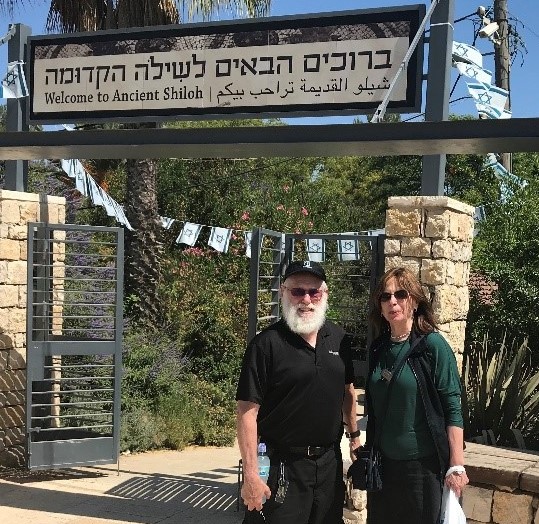
I just returned to Los Angeles after three weeks in Israel. During this trip, my wife Dvora and I were able to witness the sunset over the Mediterranean, the site of the ancient Tabernacle in Shiloh and a view of Jerusalem from the Mt. of Olives.
Israel is breathtaking, and I felt an infusion of holiness that can only be described as transcendent.
Yes, we experienced security concerns while driving through Judea and Samaria, and it was alarming to see the large red signs warning Israelis that entering Palestinian Area A is forbidden and dangerous.
Nevertheless, we were drawn to the land and contemplated settling in Israel someday.
After this experience, it is difficult to understand how the spies, mentioned in this week’s Torah portion of Shelach (Numbers 13:1–15:41), could give a discouraging report about the land of Israel.
Our Sages explain that the spies wanted to remain in the desert where all their needs were provided for by God. They did not appreciate that true holiness comes from the hard work of transforming the mundane into the sacred and that this would be their mission upon entering the land of Israel.
God is everywhere, and it is our mission to acknowledge and proclaim this through our actions. The commandants, which utilize material objects, are the God-given tools for achieving this goal. This significant point is reflected in the Hebrew word for commandment “mitzvah” also means to join and connect.
Utilizing the material world, according to the commands of God, connects us to the Almighty’s will and wisdom and essence. This process also demonstrates that there is no place void of God.
By contrast, the New Testament view of the commandments as a “curse” (Galatians 3:12) sadly misses how fortunate we are to have received these spiritual gifts from God.
Visiting and living in Israel is an opportunity to observe commandments that are only applicable there, such as allowing the land to rest in the seventh year. The spiritual message of this commandment is that we must recognize that despite our efforts, the blessing of substance comes from God.
Shabbos conveys a similar message. Once a week, we step out of the mundane world and “turn everything over to God.” By recognizing that God is in control, we can commune more intimately with our transcendent creator and enhance our personal relationship with God.
May this Shabbos be a blessing in our search for closeness to God.
Shabbat Shalom,
Rabbi Bentzion Kravitz